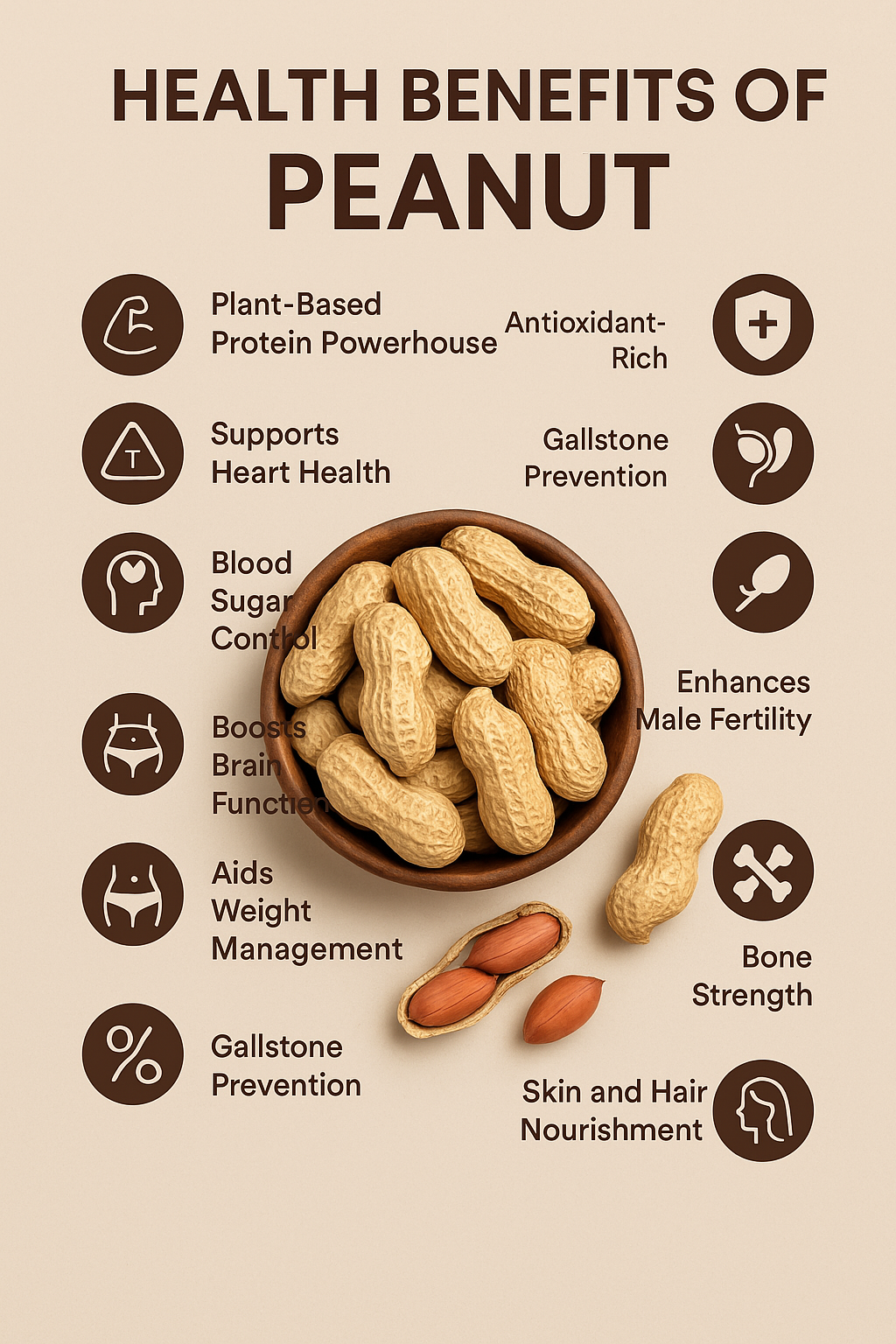Peanuts have multiple uses as snack food but their nutritional worth extends beyond hosting parties or acting as butter condiments.
The scientific classification of peanuts as legumes does not prevent people from grouping them with nuts based on their parallel nutritional composition.
Within their crispy exterior exists a store of vital health advantages.
Benefits of Peanuts including:
1. Benefits of Peanuts: A Plant-Based Protein Powerhouse for Muscle Health
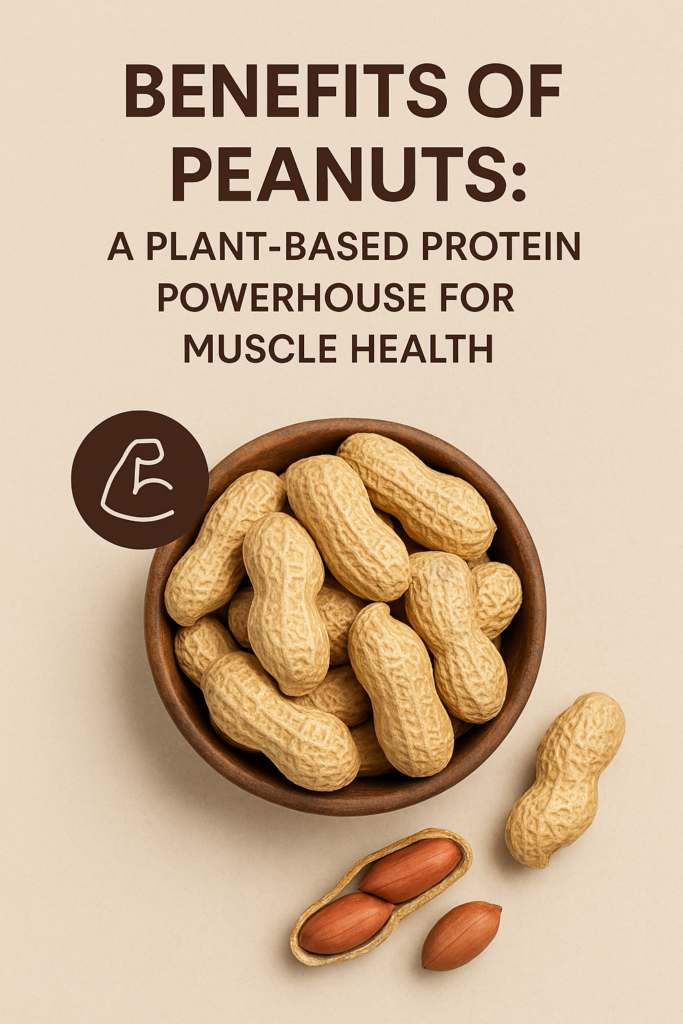
Peanuts function as superior plant-bases proteins. The amount of protein in a typical peanut serving (28 g) equals 7 g.
Peanuts serve as proper protein sources for both vegetarians and vegans as well as athletes who need animal-free muscle-building proteins.
Peanuts provide all 20 amino acids from plant sources in addition to the muscle-repair protein arginine and blood flow-supporting protein arginine.
2. Benefits of Peanuts: Heart Health Guardian: Nature’s Cholesterol Manager
The dietary content of peanuts consists of monounsaturated and polyunsaturated fats which lower LDL cholesterol levels and boost HDL cholesterol.
Research in The Journal of Nutrition demonstrates that frequent peanut consumption leads to decreased heart disease risks according to findings.
Robert Mendelson recommends using peanuts because these nuts contain resveratrol that works similarly to the antioxidant in red wine to combat heart disease and medical conditions.
3. Benefits of Peanuts: Blood Sugar Balance for Diabetics
Indeed peanuts present a minimal glycemic index (GI) while containing dietary fiber and protein together with beneficial fats which delay the absorption of sugar in bloodstream.
Scientific studies demonstrate that peanut consumption in meals can stop sugar levels from spiking which makes them suitable for diabetic patients and those with insulin resistance.
The insulin sensitivity improvements derive significantly from peanuts’ magnesium content.
4. Benefits of Peanuts: A Natural Brain Booster: Fuel for Focus and Memory
Brain health and cognitive function benefit from the niacin and vitamin E that peanuts provide to the body. The absence of niacin results in age-related cognitive deterioration which vitamin E defends cells from oxidative stress through its antioxidant properties.
The healthful fats found in peanuts assist the brain by supporting its cell structures and cellular operations.
Eating peanuts regularly promotes better memory function and enhances concentration abilities and potentially protects against Alzheimer’s disease development.
5. Benefits of Peanuts: Weight Management Partner: Satiety without the Guilt
Peanuts hold numerous calories but prove beneficial for body weight management. These nuts have high amounts of fiber and protein which create fullness that stops excessive consumption.
The consumption of peanuts with a mindful approach leads to hunger control that lasts several hours.
The scientific research in Obesity demonstrated that individuals who included peanuts in their diet reduced their total calorie intake because peanuts boosted their sense of fullness.
The thermogenic process of peanuts adds marginal metabolic boost to the body.
6. Benefits of Peanuts: Antioxidant-Rich for Anti-Aging Benefits
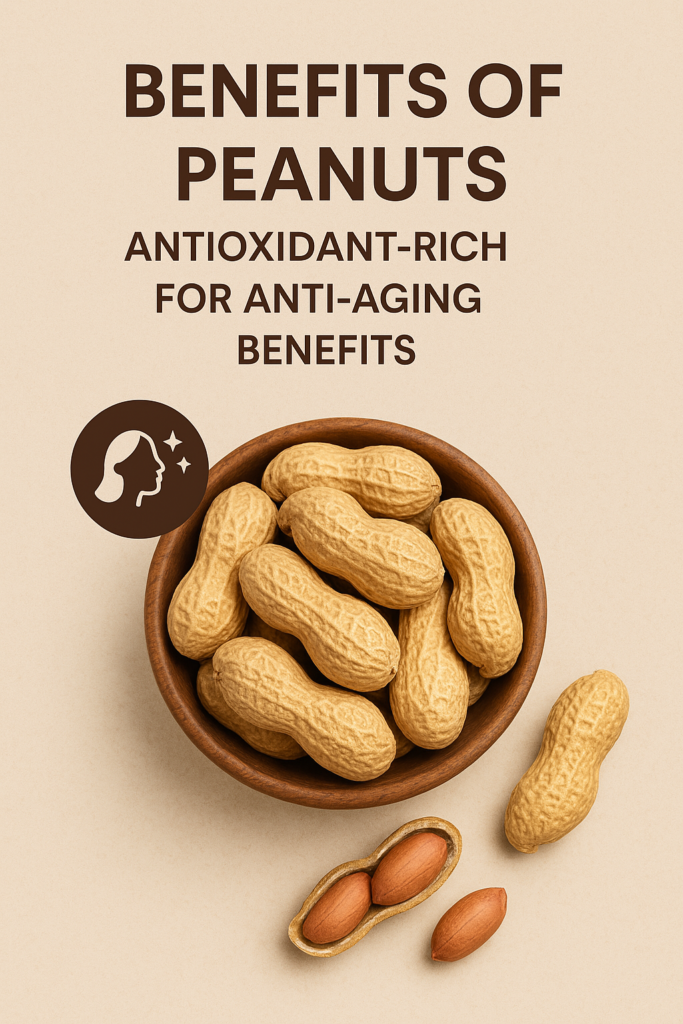
The antioxidant levels in peanuts exceed those found in apples and carrots along with various other fruits.
During roasting peanuts undergo the Maillard reaction which increases their antioxidant levels particularly in roasted peanuts.
Antioxidants present in peanuts including p-coumaric acid and resveratrol protect the skin from oxidative stress to decrease aging symptoms like wrinkles and dark spots together with inflammation-formed skin damage.
7. Benefits of Peanuts: Gallstone Prevention Through Smart Snacking
Scientific research shows that peanut consumption reduces the probability of developing gallstones in the body. Gallstones generally develop when bile contains uneven cholesterol levels.
The healthy fats including fiber content in peanuts work to shape bile elements and direct cholesterol processing.
Research from the Nurses’ Health Study analyzed women who consumed peanuts or peanut butter five times per week and discovered their decreased possibility of developing gallstones.
8. Benefits of Peanuts: Boosting Male Fertility and Sexual Health
The nutritional value of peanuts includes zinc and arginine and folate which maintain sperm production and male fertility.
The amino acid arginine present in peanuts stimulates execution of nitric oxide which helps maintain adequate blood flow leading to possible enhancement of erectile function.
The consumption of folate helps lower DNA fragmentation in sperm cells which leads to better sperm quality.
9. Benefits of Peanuts: Bone Strength Enhancer
Peanuts contain bone-boosting components including calcium together with protein and phosphorus and magnesium which are equally vital for health.
Magnesium works with the body to absorb calcium yet phosphorus functions as a bone mineral component and bone structure develops through protein.
People who consume peanuts benefit from improved bone health and decreased osteoporosis risk especially when they are part of older adult and postmenopausal women’s diets.
10. Benefits of Peanuts: Skin and Hair Nourishment from Within
The combination of vitamin E and biotin and helpful fats in peanuts promotes wellness of both skin and hair.
Skin elasticity gets better and UV damage protection occurs when you take Vitamin E alongside biotin (Vitamin B7) helps strengthen hair follicles which delivers shine effects.
The zinc content in peanuts helps skin heal wounds and controls acne because it maintains appropriate gland regulation.
Bonus: Peanut Butter – The Healthier Spread, If Chosen Wisely
Natural peanut butter represents a nutritious food component which adds value to your meals as long as you opt for butter made from pure peanuts without hydrogenated oils or added sugars.
Natural peanut butter works well as a smoothie addition and also functions as a dip for fruits together with serving as a nutritious topping for whole-grain toast.
You gain complete peanut benefits from this delicious spread which has a creamy texture.
Select peanut butter products that consist of peanuts alongside only a small amount of salt when shopping for this item.
Precautions and Allergies
The health advantages of peanuts are notable yet these versatile seeds rank among the primary substances that trigger allergic reactions in food.
People who suffer from peanut allergies need to stay completely away from these allergens because allergic reactions span from dangerous to fatal.
The general public should maintain reasonable peanut consumption at a level of 28–30 grams per day according to health experts.
Choose peanuts that are either plain or fresh rather than selecting those versions containing excessive sodium and added sugars.
How to Add Peanuts to Your Diet Creatively
Trail mix pairs roasted peanuts with dried fruits together with seeds to create a nutritious trail-friendly snack.
The traditional African dish Peanut Soup delivers a creamy serving that consists of numerous protein elements.
The peanut crust on tofu or chicken pieces provides a combination of texture and taste together with extra nutritional benefits.
Your smoothie gets creaminess and increased filling quality by adding one spoon of peanut butter.
The crushed form of peanuts serves as a flavorful ingredient in Asian sauce and dressing applications for noodles and salads.
Nutritional Value of Peanuts (per 100 grams)
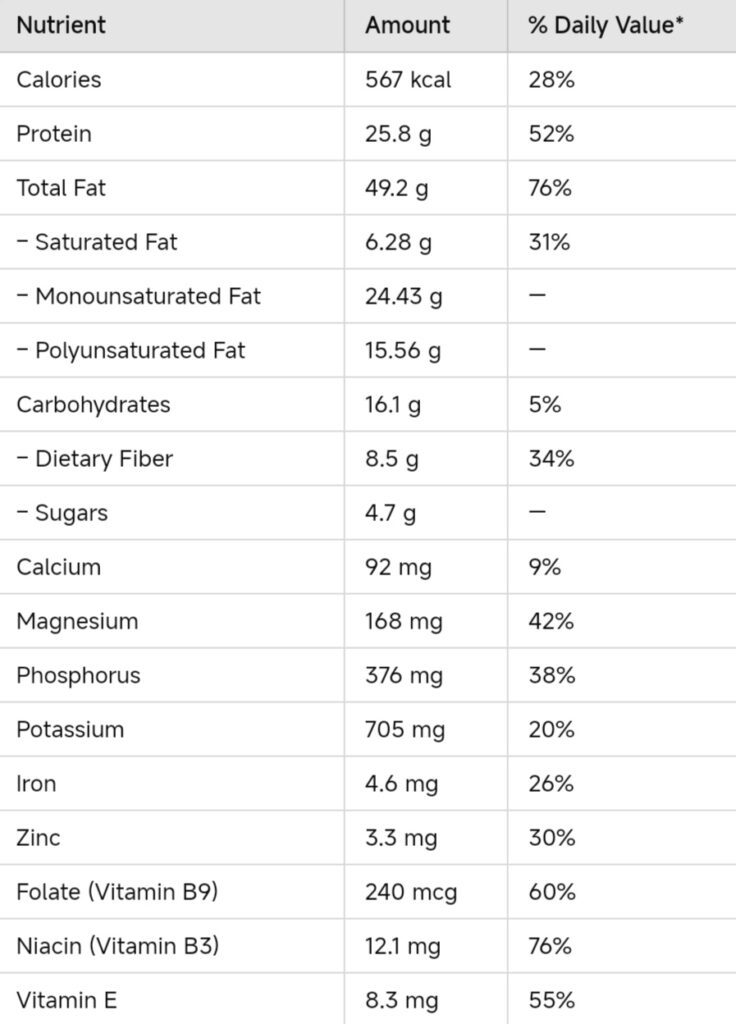
Health Benefits of Peanuts
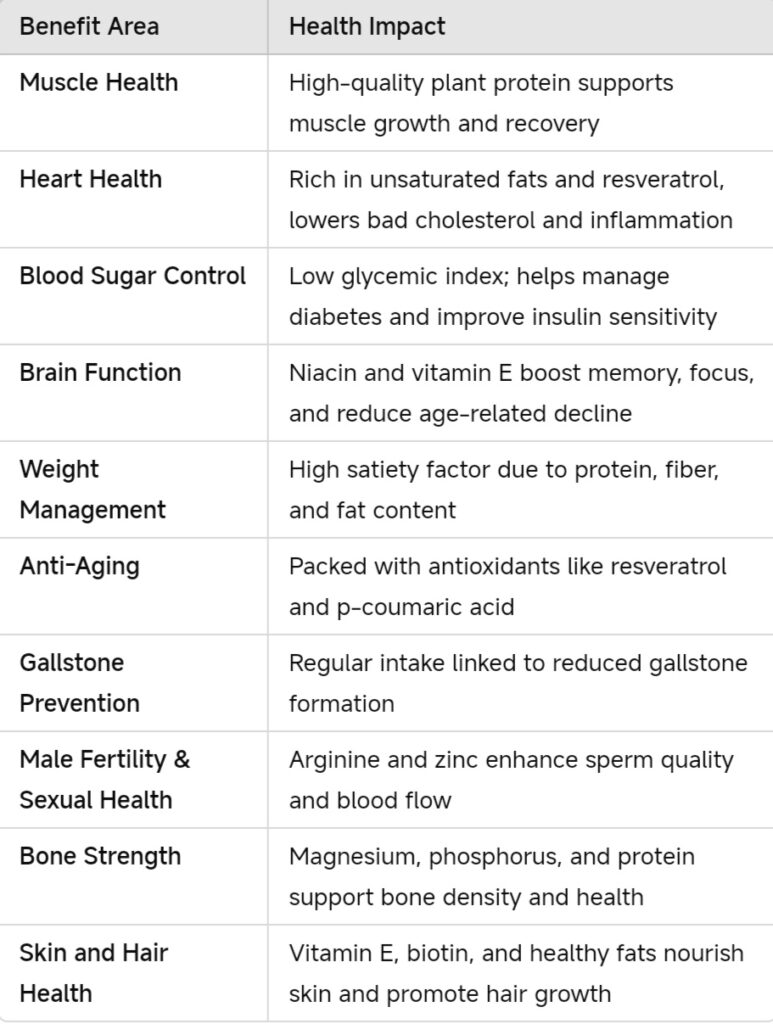
Final Thoughts
Peanuts exist as an important snack food that delivers multiple health advantages through special mechanisms. Great possible benefits of peanuts extend from cardiovascular and neurological health to weight management and skincare despite their tiny shape. Your regular food intake that includes peanuts as a mindful component brings major benefits to your total health.
